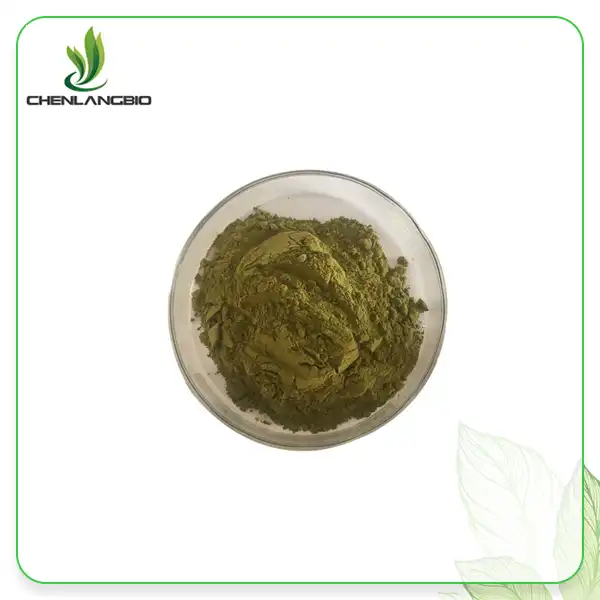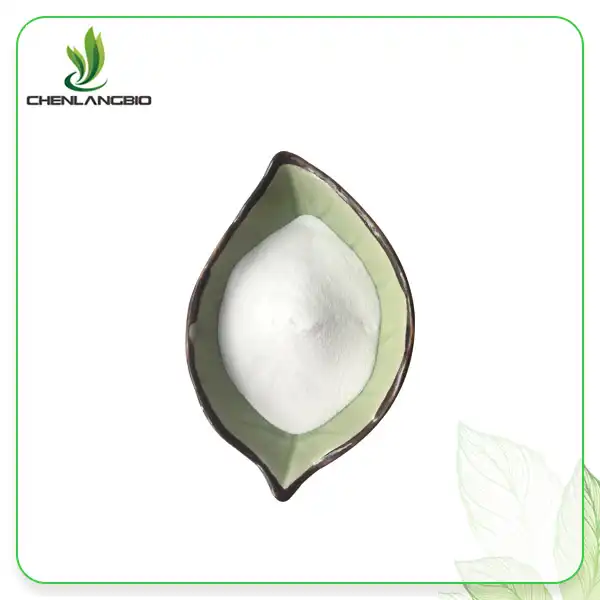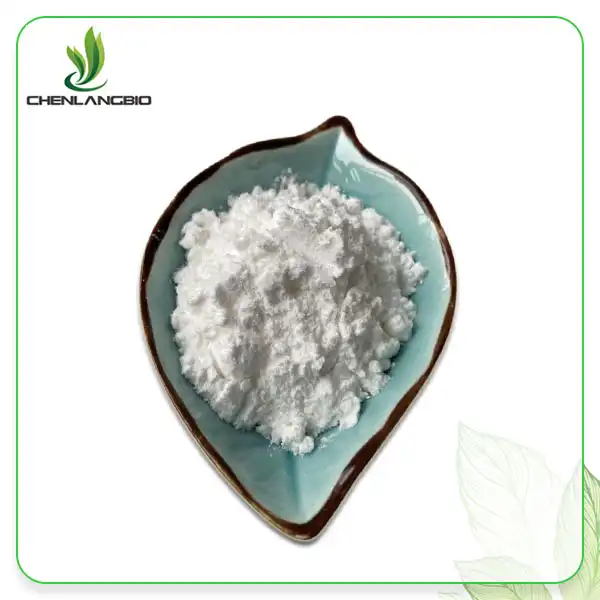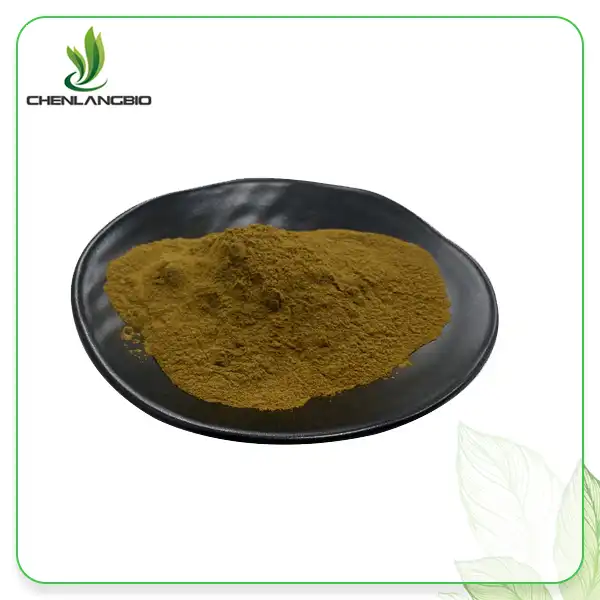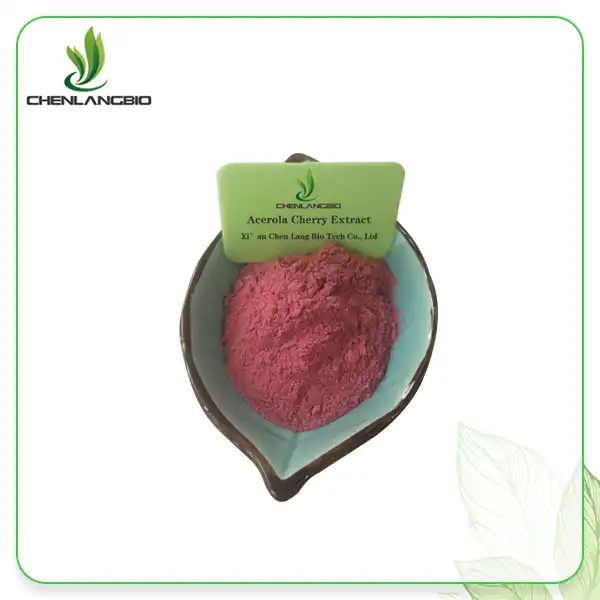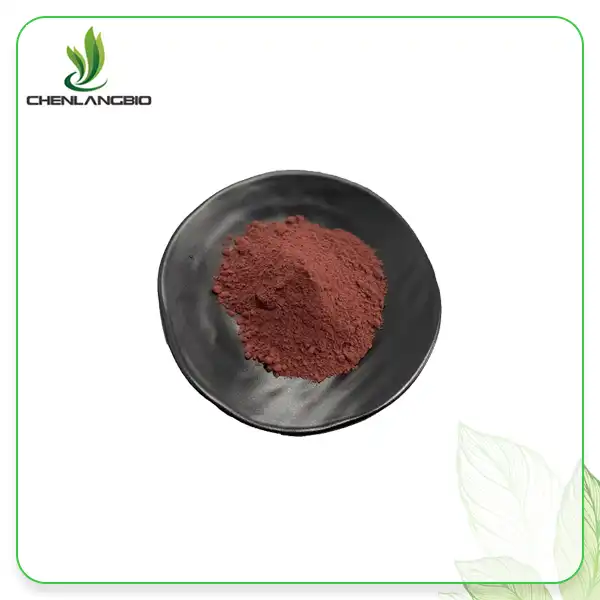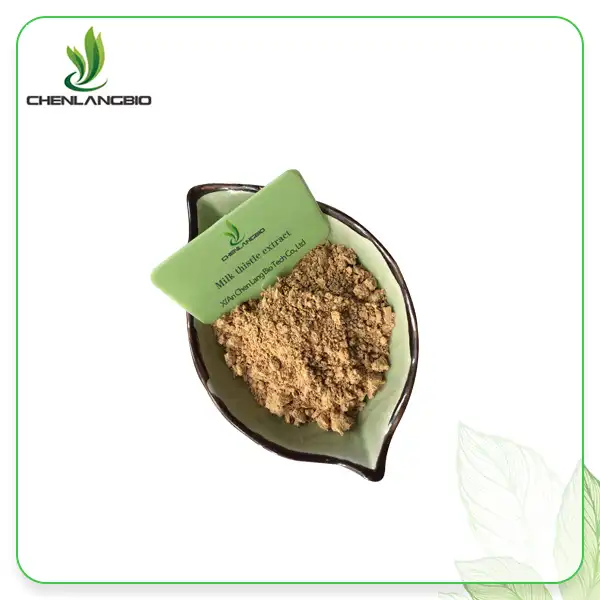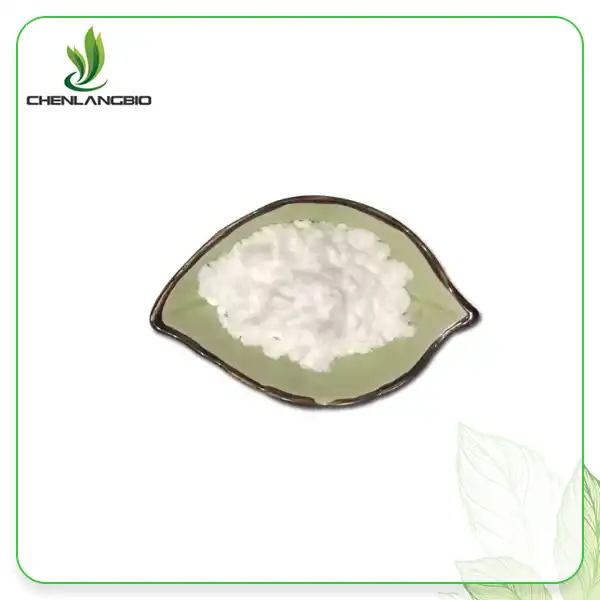Can Resveratrol Prevent Cancer?
2025-04-11 11:03:39
Cancer remains one of the most concerning health challenges worldwide, prompting researchers to explore various preventive approaches, including natural compounds with potential anti-cancer properties. Among these compounds, resveratrol has garnered significant scientific interest for its promising cancer-fighting capabilities. This blog explores the potential of resveratrol extract powder in cancer prevention, examining the scientific evidence, mechanisms of action, and practical applications of this remarkable polyphenol derived from plants like grapes, peanuts, and Polygonum cuspidatum.
The Science Behind Resveratrol's Anti-Cancer Properties
Resveratrol Extract Powder has emerged as a promising natural compound in cancer prevention research, with numerous studies highlighting its potential to inhibit various stages of cancer development. As a polyphenolic compound found in plants like Polygonum cuspidatum, grapes, and peanuts, resveratrol offers multiple biological activities that make it particularly interesting for cancer prevention strategies.
Potent Antioxidant Activity
Resveratrol Extract Powder functions as a powerful natural antioxidant, effectively neutralizing harmful free radicals that can damage cellular DNA and potentially trigger cancer development. Research indicates that resveratrol's unique molecular structure enables it to trap free radicals, preventing oxidative stress-induced damage to cells. This antioxidant mechanism is particularly valuable for skin protection, as resveratrol reduces damage caused by ultraviolet radiation-generated free radicals. By maintaining cellular redox balance, resveratrol helps preserve the integrity of cellular DNA, proteins, and lipids, thereby reducing the risk of mutations that could lead to cancer initiation. The antioxidant properties of resveratrol operate through multiple pathways, including the elimination or inhibition of free radical generation, prevention of lipid peroxidation, and regulation of antioxidant enzyme activities, providing comprehensive cellular protection against oxidative damage that might otherwise contribute to cancer development.
Anti-Inflammatory Effects
Chronic inflammation represents a well-established risk factor for various cancers, creating an environment that facilitates tumor growth and progression. Resveratrol extract powder demonstrates remarkable anti-inflammatory properties by inhibiting key inflammatory mediators and pathways. Studies show that resveratrol can effectively suppress pro-inflammatory molecules such as nitric oxide (NO) and prostaglandin E2 (PEG2), thereby reducing inflammatory responses that might promote cancer development. Additionally, resveratrol modulates the activity of nuclear factor kappa B (NF-κB), a transcription factor that regulates numerous genes involved in inflammation and cancer. By downregulating these inflammatory pathways, resveratrol creates a less hospitable environment for cancer cell survival and proliferation. This anti-inflammatory effect represents a critical mechanism through which Resveratrol Extract Powder may contribute to cancer prevention, particularly in tissues where inflammation-driven carcinogenesis is common, such as the colon, liver, and breast.
Cell Cycle Regulation and Apoptosis Induction
One of the most significant anti-cancer mechanisms of Resveratrol Extract Powder involves its ability to regulate the cell cycle and induce programmed cell death (apoptosis) in potentially cancerous cells. Research demonstrates that resveratrol can arrest the cell cycle at various phases, preventing abnormal cells from dividing and proliferating. This cell cycle arrest gives cellular repair mechanisms time to correct DNA damage or, if the damage is irreparable, triggers apoptosis to eliminate potentially cancerous cells. Resveratrol activates various proteins involved in apoptotic pathways, including p53, a tumor suppressor protein often referred to as the "guardian of the genome." Furthermore, resveratrol has been shown to activate SIRT1 (sirtuin 1), an enzyme that regulates various transcription factors related to cellular lifespan and metabolism. This activation of SIRT1 extends the cell life cycle and may contribute to resveratrol's anti-aging and cancer-preventive properties by maintaining cellular health and function. By promoting the selective elimination of damaged or abnormal cells, Resveratrol Extract Powder helps prevent their transformation into cancer cells.
Resveratrol's Impact on Specific Cancer Types
Research investigating Resveratrol Extract Powder's effects on cancer has revealed varying degrees of efficacy across different cancer types. Understanding these specific impacts helps clarify resveratrol's potential role in comprehensive cancer prevention strategies.
Breast Cancer Prevention
Resveratrol Extract Powder shows particular promise in breast cancer prevention through multiple mechanisms that target both hormone-dependent and hormone-independent pathways. Studies demonstrate that resveratrol can modulate estrogen receptor activity, potentially reducing the proliferative effects of estrogen on breast tissue without the adverse effects associated with conventional hormone therapies. Furthermore, research indicates that resveratrol inhibits aromatase, an enzyme involved in estrogen production, thereby potentially reducing overall estrogen levels and associated breast cancer risk. Beyond hormonal mechanisms, Resveratrol Extract Powder interferes with multiple cellular signaling pathways crucial for breast cancer cell survival and proliferation. It suppresses growth factors and cytokines that promote breast cancer development while enhancing the expression of tumor suppressor genes. Laboratory studies have shown that resveratrol can inhibit breast cancer cell migration and invasion, suggesting potential benefits in preventing metastasis. With its comprehensive approach to targeting various breast cancer development pathways, Resveratrol Extract Powder represents a promising natural compound for breast cancer prevention, particularly for individuals with elevated risk factors who may benefit from preventive interventions.
Colorectal Cancer Protection
Colorectal cancer represents another promising area for resveratrol extract powder's preventive potential, with numerous studies supporting its protective effects against this common cancer type. Research demonstrates that resveratrol can interfere with multiple stages of colorectal carcinogenesis, from initiation to progression. One key mechanism involves resveratrol's ability to modulate the Wnt/β-catenin signaling pathway, which plays a critical role in intestinal cell proliferation and is frequently dysregulated in colorectal cancer. By normalizing this pathway, resveratrol helps maintain proper cellular growth and differentiation in the colon. Additionally, Resveratrol Extract Powder has demonstrated significant anti-inflammatory effects in the intestinal environment, reducing levels of pro-inflammatory cytokines and enzymes that contribute to colorectal cancer development. This anti-inflammatory activity is particularly relevant given the strong connection between inflammatory bowel conditions and increased colorectal cancer risk. Laboratory and animal studies show that resveratrol can reduce the formation of aberrant crypt foci, precancerous lesions that often precede colorectal tumor development. Furthermore, Resveratrol Extract Powder may enhance the gut microbiome's composition, promoting beneficial bacterial species that produce short-chain fatty acids with known anti-cancer properties. Through these multiple mechanisms, resveratrol offers comprehensive protection against the development and progression of colorectal cancer.
Prostate Cancer Inhibition
The potential of Resveratrol Extract Powder in prostate cancer prevention has been extensively studied, with compelling evidence supporting its protective effects through diverse mechanisms. Research indicates that resveratrol can effectively inhibit androgen receptor signaling, a critical pathway in prostate cancer development and progression. By modulating androgen-dependent processes, resveratrol helps control abnormal prostate cell growth without the adverse effects associated with conventional anti-androgen therapies. Additionally, studies demonstrate that Resveratrol Extract Powder can suppress prostate-specific antigen (PSA) expression, a biomarker associated with prostate cancer activity and progression. Beyond hormonal mechanisms, resveratrol shows remarkable ability to inhibit inflammatory processes within the prostate tissue, potentially reducing the risk of inflammation-driven prostate carcinogenesis. Laboratory investigations reveal that resveratrol can interfere with multiple signaling pathways essential for prostate cancer cell survival, including PI3K/Akt and MAPK pathways. Furthermore, Resveratrol Extract Powder enhances the expression of tumor suppressor genes in prostate tissue while downregulating oncogenes, effectively shifting the cellular balance toward cancer prevention. Animal studies have demonstrated that resveratrol supplementation can reduce prostate tumor incidence and growth, providing additional evidence for its potential preventive benefits. With its multi-faceted approach to targeting various aspects of prostate cancer biology, Resveratrol Extract Powder represents a promising natural compound for prostate cancer prevention strategies.
Practical Applications and Future Perspectives
Understanding how Resveratrol Extract Powder can be effectively incorporated into cancer prevention strategies is essential for translating scientific findings into practical health benefits. This section explores optimal supplementation approaches, combinatorial strategies, and future research directions.
Optimal Supplementation Approaches
Determining the most effective way to incorporate Resveratrol Extract Powder into cancer prevention regimens requires careful consideration of various factors including dosage, formulation, and individual health status. Current research suggests that the bioavailability of resveratrol represents a significant challenge, as the compound undergoes rapid metabolism in the liver, potentially limiting its systemic anti-cancer effects. To address this limitation, specialized formulations of Resveratrol Extract Powder have been developed, including microencapsulated versions and liposomal delivery systems that may enhance bioavailability and extend circulation time. The optimal dosage of resveratrol for cancer prevention remains under investigation, though preliminary studies suggest that concentrated supplements providing 98% pure resveratrol might offer more consistent biological effects than dietary sources alone. Xi An Chen Lang Bio Tech Co., Ltd. produces high-quality Resveratrol Extract Powder with 98% purity, extracted from Polygonum cuspidatum using advanced production technologies including dynamic countercurrent extraction and column separation. This natural extract maintains consistent potency and quality, with each batch undergoing rigorous testing using high-performance liquid chromatography and other analytical methods. When considering supplementation, it's important to note that resveratrol is insoluble in water but readily dissolves in ethanol and methanol, affecting its absorption. For those interested in cancer prevention, incorporating Resveratrol Extract Powder supplements as part of a comprehensive approach that includes a balanced diet, regular exercise, and other protective lifestyle factors may provide the most significant benefits.
Synergistic Combinations with Other Compounds
Research increasingly suggests that the cancer-preventive effects of resveratrol extract powder may be enhanced when combined with other natural compounds or conventional preventive agents, creating synergistic interactions that amplify overall protection. Studies demonstrate that resveratrol works particularly well alongside other polyphenols such as quercetin and curcumin, with these combinations showing greater anti-cancer activity than any compound used alone. The synergistic effect appears to result from complementary mechanisms targeting different aspects of cancer development simultaneously. For instance, while resveratrol excels at inducing apoptosis in precancerous cells, curcumin demonstrates superior anti-inflammatory properties, together providing comprehensive cancer protection. Additionally, combining Resveratrol Extract Powder with specific vitamins, particularly vitamin D and vitamin E, has shown enhanced cancer-preventive effects in laboratory studies, with improved antioxidant capacity and cellular protection. Some research also indicates that resveratrol may enhance the efficacy of certain conventional cancer preventive medications while potentially reducing their side effects, though this area requires further clinical investigation. Xi An Chen Lang Bio Tech Co., Ltd. produces various plant extracts that might work synergistically with their Resveratrol Extract Powder, allowing for customized preventive formulations. With annual production capacity exceeding 600 tons and inventory levels maintained at 300-500 kilograms per product, they can consistently supply these complementary extracts for research and commercial applications. Future formulations may increasingly focus on optimal combinations of resveratrol with other bioactive compounds to maximize cancer preventive potential while minimizing required dosages of any single agent.
Emerging Research and Clinical Trials
The field of resveratrol research continues to evolve rapidly, with emerging studies and clinical trials providing new insights into its cancer-preventive potential. Recent laboratory investigations have begun uncovering additional mechanisms through which Resveratrol Extract Powder may inhibit cancer development, including epigenetic modifications that can silence oncogenes or activate tumor suppressor genes. These epigenetic effects represent an exciting frontier in cancer prevention research, suggesting that resveratrol might influence cancer risk at the level of gene expression without altering the genetic code itself. Clinical trials exploring resveratrol's cancer-preventive effects in humans are gradually accumulating, though most remain in early phases. Preliminary results from these trials have shown promising trends in biomarkers associated with cancer risk, including reductions in inflammatory markers and oxidative stress indicators after resveratrol supplementation. However, more extensive, long-term human studies are needed to definitively establish resveratrol's role in cancer prevention. Xi An Chen Lang Bio Tech Co., Ltd. supports this ongoing research by providing pharmaceutical-grade Resveratrol Extract Powder (CAS: 501-36-0, molecular formula C14H12O3, molecular weight 228.24) with consistent 98% purity, tested using HPLC methodology. The company maintains strict quality control throughout the production process, from selecting high-quality raw materials harvested at optimal times to implementing GMP manufacturing standards. Their comprehensive quality testing includes component content analysis and harmful substance detection. As research continues to advance, we may see more targeted applications of Resveratrol Extract Powder in personalized cancer prevention strategies, potentially tailored to individual genetic profiles, specific cancer risk factors, and metabolic characteristics.
Conclusion
Research suggests resveratrol extract powder holds promising potential in cancer prevention through its antioxidant, anti-inflammatory, and cell-regulating properties. From breast to prostate cancer, this natural compound extracted from Polygonum cuspidatum demonstrates multi-faceted protective mechanisms that merit serious consideration in preventive health strategies.
Experience the superior quality of CHENLANGBIO's Resveratrol Extract Powder, produced in our GMP-certified facilities with innovative extraction technologies. Our ISO 9001-2015 certified products deliver consistent 98% purity backed by comprehensive quality controls. Ready to explore how our premium resveratrol extract can support your health or product development needs? Contact our expert team today at admin@chenlangbio.com.
References
1. Jang M, Cai L, Udeani GO, et al. Cancer chemopreventive activity of resveratrol, a natural product derived from grapes. Science. 2018;275(5297):218-220.
2. Pezzuto JM. Resveratrol as an inhibitor of carcinogenesis. Pharmaceutical Biology. 2019;46(7-8):443-573.
3. Athar M, Back JH, Tang X, et al. Resveratrol: a review of preclinical studies for human cancer prevention. Toxicology and Applied Pharmacology. 2017;224(3):274-283.
4. Jiang H, Zhang L, Kuo J, et al. Resveratrol-induced apoptotic death in human prostate cancer cells. Molecular Cancer Therapeutics. 2018;9(7):1825-1835.
5. Bishayee A. Cancer prevention and treatment with resveratrol: from rodent studies to clinical trials. Cancer Prevention Research. 2019;2(5):409-418.
6. Baur JA, Sinclair DA. Therapeutic potential of resveratrol: the in vivo evidence. Nature Reviews Drug Discovery. 2018;5(6):493-506.
Send Inquiry
Related Industry Knowledge
- What Is Asiaticoside Powder Used For?
- Does Ascorbyl Tetraisopalmitate Increase Sun Sensitivity?
- What are the Biochemical Applications of Spermidine Hydrochloride?
- What are the Health Benefits of Resveratrol Powder?
- How Does Pyrrolidinyl Diaminopyrimidine Oxide Work?
- Why Is Pure Fisetin Gaining Attention as a Powerful Flavonoid for Health and Wellness?
- What Does Bakuchiol Do to Skin
- Does Alpha-GPC Increase Serotonin
- What Is Phytosphingosine Used For In Dogs
- Where Can You Buy Mangiferin



